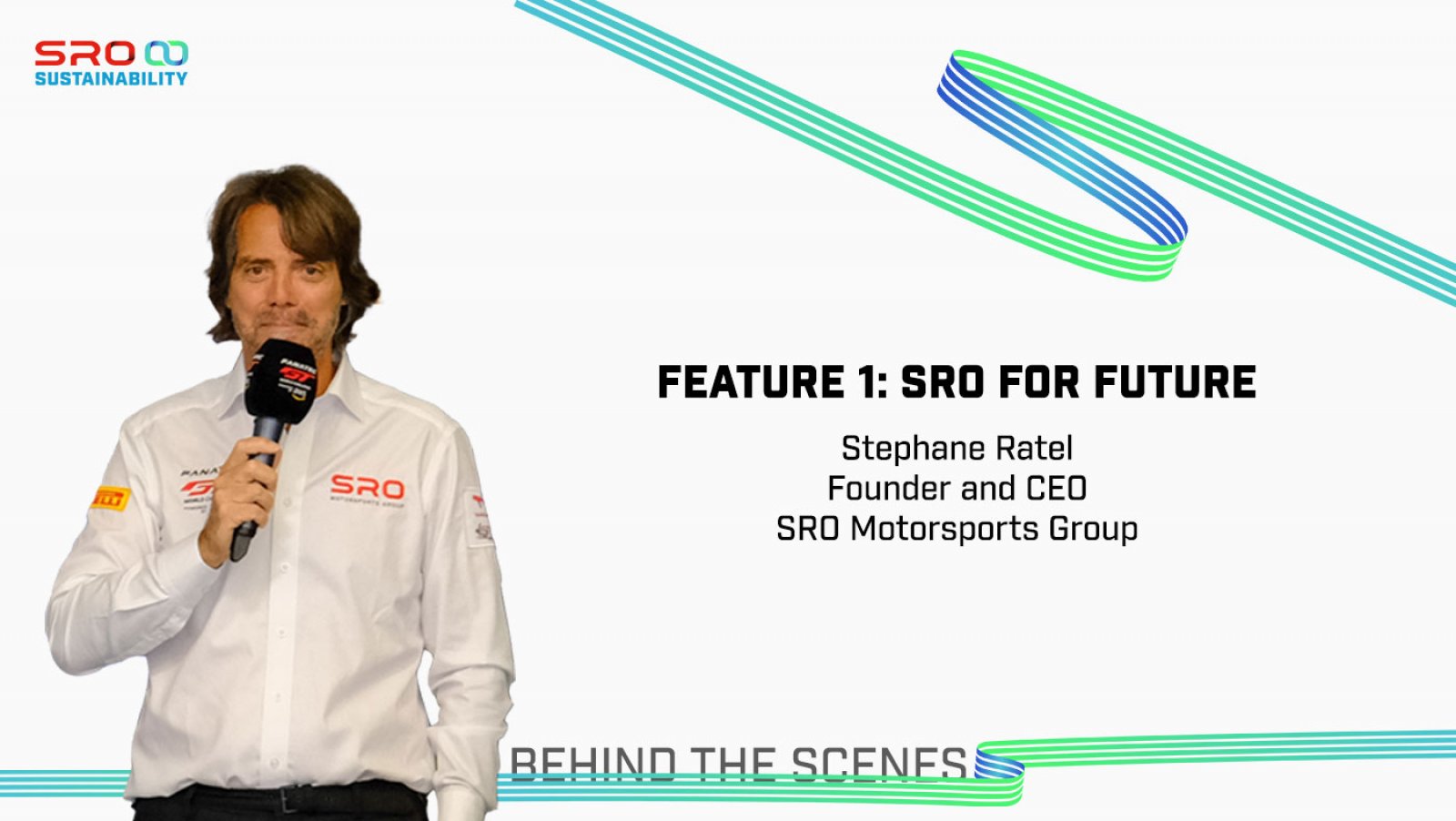Interview: Stephane Ratel, Founder and CEO, SRO Motorsports Group
In this first edition of our Behind the Scenes series we spoke to our founder and CEO Stephane Ratel on SRO’s sustainability path and the future of motorsports, in a world engendered by climate changes.
1) Please tell us what motivated you to work on a sustainability strategy for SRO?
Having nearly three decades of experience at the forefront of a continuously evolving industry has allowed us to proudly establish as the global leader in GT racing. Taking this leadership role in all its weight meant being aware of the environmental consequences our global operations have. This awareness, along with seeing nature beautifully coming back to us in urban cities, in all its, sadly, long forgotten forms, during the 2020 pandemic year, were crucial for my determination to strive for environmental improvements. An additional motivation for solving CO2 was SRO heading towards establishing collaboration with partners who have safeguarding the environment as a priority of their own.
Nevertheless, managing our business while taking in account its environmental impact, required substantial time and financial investments. In recent years, the latter became feasible with different technological advances bringing diverse production costs down. Time was the last missing piece of the puzzle, and in 2020 we decided that the time was now to start imminently working on our sustainability strategy and do our part for the environment and the future - of motorsports, next generations and the Planet.
2) Please describe your private daily life involvement with sustainability?
Having a busy lifestyle requires frequent travelling for business, but also personal purposes, whose impact I try to compensate by financing responsible flying programmes. The reality is, at present most of our daily life actions are inextricably linked to carbon creation, therefore I am in favour of engaging with available carbon compensation programmes, verified by international standards.
Being a very pragmatic person, I have always been against unnecessary consumerism and wasting resources in an inefficient way which hurts the environment.
3) Which concrete actions is SRO taking in 2022 for more sustainable business operations?
Our two main goals in 2022 are zero plastic waste paddocks and sustainable promo gear, on all our events. We have banned single use plastic and have looked at recyclable alternatives for all event related materials we will be using. We are also trying to motivate eco-friendly traveling to events and will use green energy at circuits, when available. This year we will continue offsetting our residual carbon emissions, by supporting a vital endangered rainforest eco system in Indonesia. The carbon credits invested compensate SRO’s carbon footprint, as well as our competitors’ footprint. Our carbon footprint assessment highlighted the competitor footprint as the largest contributor to our emissions, therefore we have worked on tackling that, and are pleased to say that all our competitor fleets in 2022 will be carbon neutral.
4) What is your main sustainability message to SRO stakeholders and its audiences?
First and foremost, this is the right thing to do. It’s about leaving a legacy for our children. It is also about the future relevance of our sport, we need to ensure that motorsports keeps being one of the most attractive sports to compete in and it has a place in our world.
We can’t argue that our sport is passionate, and as long as people are passionate, they will continue engaging, therefore it is on us to do our best to lead by example and provide guidance for a sustainable future for motorsports.
I believe that by working together, we can protect the future of what we love and keep the spirit of motorsports alive.
5) Where do you see SRO in terms of sustainability in 2030?
When speaking strictly about our business model, SRO wouldn’t be sustainable if we didn’t achieve improvements together with our fuel and tyre partners.
On the sustainable race fuel topic, I see us partnering with innovators in fuel and using advanced zero-carbon e-fuel throughout all our racing activities in 2030. We provide sensory experience so whilst electric vehicles may be a part of our future, e-fuels are needed for fans spectacle and pleasure for drivers.
On the tyres field, we would like to inspire a low-carbon, circular mindset, and aim to use sustainably designed tyres, which last longer, achieving a maximal used tyres upcycling by 2030.
Lastly, we will be ‘walking to walk’ on genuinely reducing our carbon emissions in each area of work, arriving in 2030 with minimal, unavoidable carbon emissions, which will be compensated via credible, locally relevant environmental projects.
___

